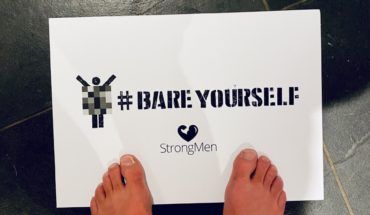Birmingham-based Priory expert: Loneliness and isolation is fuelling alcohol addiction in older people:-
- Leading psychiatrist Dr Syed Omair Ahmed says older people are particularly vulnerable to mental health issues in the pandemic
- The pandemic is having a major psychological impact, and alcohol can become a ‘coping mechanism’, he says
- Millions are struggling as a result of fears and uncertainty surrounding Covid-19, and many older people do not access talking therapies
A leading Priory psychiatrist has urged older people in the region to reach out for help amid concern that loneliness and isolation has taken a significant toll, fuelling an increase in alcoholism and grief disorders.
Dr Syed Omair Ahmed, psychiatrist at Priory’s Birmingham Wellbeing Centre in the city centre, and the Priory Woodbourne Hospital in Edgbaston, said people had lost their everyday routines, there were huge anxieties about job losses, and many had endured ‘significant bereavements’ as a result of Covid-19.
“All of this has led to an increase in alcohol and other substance misuse,” he said, “and we are seeing more people above the age of 65 resorting to alcohol.
“The causes are manifold including boredom, isolation, fear, lack of family contact, and lack of outdoor activities.
“Not seeing a GP out of fear of Covid-19 means that physical health conditions are not being optimally addressed, and this can lead to increased drinking as a coping mechanism for pain or pre-existing mental health issues.
“And a change to your daily routine can often mean sleep patterns are disrupted – again leading to an increased use of alcohol as a sleeping aid.
“Bereavements of close friends and loved ones has contributed to feelings of fear, depression, stress and anxiety; the inability to be near loved ones during the Covid pandemic and not being able to participate in a funeral, leads to abnormal bereavement reactions, increasing the likelihood of drinking and mental health issues.
“And the older population are more likely to be religiously active and their faith is a strong source of solace so lack of contact with places of worship have further led to isolation.”
Dr Ahmed was speaking ahead of Alcohol Awareness Week, starting on 16 November, which this year focuses on the link between alcohol and mental health. Around 1 in 4 people in the UK experiences a mental health problem each year and drinking too much or too often can increase the risk. But many are unaware of the link between alcohol and poor mental health and alcohol is often the first thing they turn to when feeling low, stressed, worried or unable to cope.
A recent Public Health England report showed a 34% increase in number of people drinking over 50 units a week during lockdown. The NHS recommends people keep their alcohol consumption to less than 14 units a week.
Dr Ahmed said: “We are also seeing an increase in severe or fatal alcohol-related complications – in particular amongst people with co-existing mental health problems and the homeless population. A lot of these people rely on alcohol and any sudden cessation in supply without medical support is dangerous.
“Even before the pandemic, a lot of addictions services were being cut and underfunded nationally meaning that people were already struggling to access care. And from a physical health point of view – it is well known that people with substance misuse are more likely to get serious Covid complications. The pandemic has also caused a lot of social isolation – people have lost a great degree of human contact – and this lack of support and feelings of isolation has led to increased usage of alcohol and illicit substances as a ‘coping’ mechanism.
“People who were already involved in aftercare meetings such as AA have also struggled. The regular attendance at the group meetings was not only a chance to promote abstinence but to socialise with other people and this went a long way to promote their recovery. Although various telephone and online measures are being used, the lack of human contact meant that a lot of people were missing out on this important facility.
“It is not only alcohol and opiate use that has increased. People are stockpiling prescription medication – this in itself can have significant health consequences.
“And as most people have a lot more time on their hands – this has also exacerbated gaming and phone addiction issues. Although technology can be useful – in regards to informing good hygiene practices or keeping people abreast of the current pandemic situation – there is a downside that could lead to both mental and physical health problems.”
So how can people get help?
“People should contact their GP in the first instance,” Dr Ahmed says.
“They can contact their local alcohol and drug support agencies if they need to.
“There are also some substance misuse charities, and there are many helplines to point people to services they can access if they are feeling lonely, depressed or isolated including The Samaritans and The Silver Line.
“Private services, such as the Priory, can deal with all kinds of mental health conditions and addictions – including alcohol, drugs, gaming – with both inpatient rehab and outpatient services and there is online therapy available.”
- Half way to Health: Dry January Motivation - 21st January 2025
- Priory’s Reaction to Government’s Social Care Workforce Update - 15th January 2024
- Responsible alcohol consumption during ‘Office Party Season’ - 10th December 2023







